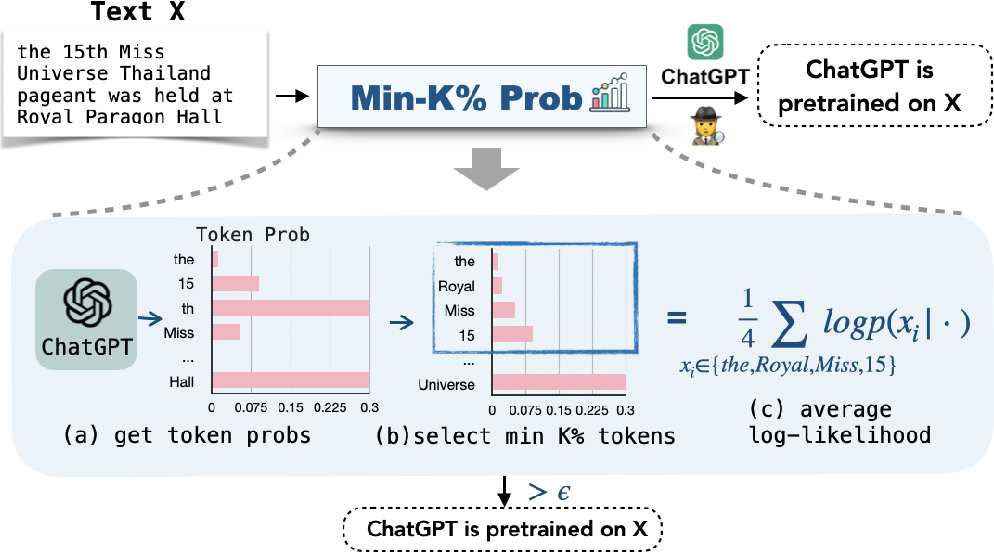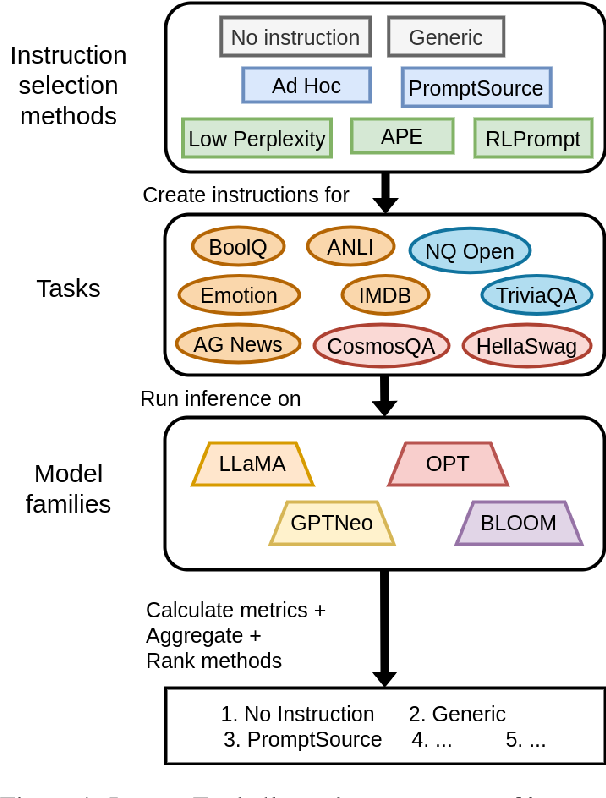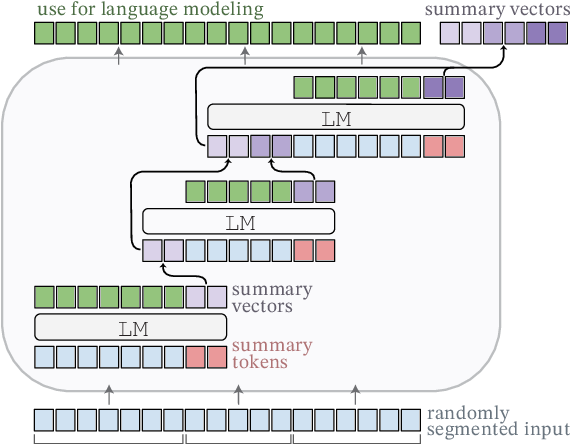publications
2024
-
 LitSearch: A Retrieval Benchmark for Scientific Literature SearchAnirudh Ajith, Mengzhou Xia, Alexis Chevalier, Tanya Goyal, Danqi Chen, and Tianyu GaoEmpirical Methods in Natural Language Processing (EMNLP) 2024
LitSearch: A Retrieval Benchmark for Scientific Literature SearchAnirudh Ajith, Mengzhou Xia, Alexis Chevalier, Tanya Goyal, Danqi Chen, and Tianyu GaoEmpirical Methods in Natural Language Processing (EMNLP) 2024Literature search questions, such as "Where can I find research on the evaluation of consistency in generated summaries?" pose significant challenges for modern search engines and retrieval systems. These questions often require a deep understanding of research concepts and the ability to reason across entire articles. In this work, we introduce LitSearch, a retrieval benchmark comprising 597 realistic literature search queries about recent ML and NLP papers. LitSearch is constructed using a combination of (1) questions generated by GPT-4 based on paragraphs containing inline citations from research papers and (2) questions manually written by authors about their recently published papers. All LitSearch questions were manually examined or edited by experts to ensure high quality. We extensively benchmark state-of-the-art retrieval models and also evaluate two LLM-based reranking pipelines. We find a significant performance gap between BM25 and state-of-the-art dense retrievers, with a 24.8% absolute difference in recall@5. The LLM-based reranking strategies further improve the best-performing dense retriever by 4.4%. Additionally, commercial search engines and research tools like Google Search perform poorly on LitSearch, lagging behind the best dense retriever by up to 32 recall points. Taken together, these results show that LitSearch is an informative new testbed for retrieval systems while catering to a real-world use case.
- Downstream Trade-offs of a Family of Text WatermarksAnirudh Ajith, Sameer Singh, and Danish PruthiFindings of Empirical Methods in Natural Language Processing (EMNLP) 2024
Watermarking involves implanting an imperceptible signal into generated text that can later be detected via statistical tests. A prominent family of watermarking strategies for LLMs embeds this signal by upsampling a (pseudorandomly-chosen) subset of tokens at every generation step. However, such signals alter the model’s output distribution and can have unintended effects on its downstream performance. In this work, we evaluate the performance of LLMs watermarked using three different strategies over a diverse suite of tasks including those cast as k-class classification (CLS), multiple choice question answering (MCQ), short-form generation (e.g., open-ended question answering) and long-form generation (e.g., translation) tasks. We find that watermarks (under realistic hyperparameters) can cause significant drops in LLMs’ effective utility across all tasks. We observe drops of 10 to 20% in CLS tasks in the average case, which shoot up to 100% in the worst case. We notice degradations of about 7% in MCQ tasks, 10-15% in short-form generation, and 5-15% in long-form generation tasks. Our findings highlight the trade-offs that users should be cognizant of when using watermarked models.
-
 Detecting Pretraining Data from Large Language ModelsWeijia Shi*, Anirudh Ajith*, Mengzhou Xia, Yangsibo Huang, Daogao Liu, Terra Blevins, Danqi Chen, and Luke ZettlemoyerInternational Conference on Learning Representations (ICLR) 2024
Detecting Pretraining Data from Large Language ModelsWeijia Shi*, Anirudh Ajith*, Mengzhou Xia, Yangsibo Huang, Daogao Liu, Terra Blevins, Danqi Chen, and Luke ZettlemoyerInternational Conference on Learning Representations (ICLR) 2024Although large language models (LLMs) are widely deployed, the data used to train them is rarely disclosed. Given the incredible scale of this data, up to trillions of tokens, it is all but certain that it includes potentially problematic text such as copyrighted materials, personally identifiable information, and test data for widely reported reference benchmarks. However, we currently have no way to know which data of these types is included or in what proportions. In this paper, we study the pretraining data detection problem: given a piece of text and black-box access to an LLM without knowing the pretraining data, can we determine if the model was trained on the provided text? To facilitate this study, we introduce a dynamic benchmark WIKIMIA that uses data created before and after model training to support gold truth detection. We also introduce a new detection method Min-K% Prob based on a simple hypothesis: an unseen example is likely to contain a few outlier words with low probabilities under the LLM, while a seen example is less likely to have words with such low probabilities. Min-K% Prob can be applied without any knowledge about the pretraining corpus or any additional training, departing from previous detection methods that require training a reference model on data that is similar to the pretraining data. Moreover, our experiments demonstrate that Min-K% Prob achieves a 7.4% improvement on WIKIMIA over these previous methods. We apply Min-K% Prob to two real-world scenarios, copyrighted book detection, and contaminated downstream example detection, and find it a consistently effective solution.
2023
-
 InstructEval: Systematic Evaluation of Instruction Selection MethodsAnirudh Ajith, Chris Pan, Mengzhou Xia, Ameet Deshpande, and Karthik NarasimhanFindings of North American Chapter of the Association for Computational Linguistics (NAACL) 2024
InstructEval: Systematic Evaluation of Instruction Selection MethodsAnirudh Ajith, Chris Pan, Mengzhou Xia, Ameet Deshpande, and Karthik NarasimhanFindings of North American Chapter of the Association for Computational Linguistics (NAACL) 2024In-context learning (ICL) performs tasks by prompting a large language model (LLM) using an instruction and a small set of annotated examples called demonstrations. Recent work has shown that precise details of the inputs used in the ICL prompt significantly impact performance, which has incentivized instruction selection algorithms. The effect of instruction-choice however is severely underexplored, with existing analyses restricted to shallow subsets of models and tasks, limiting the generalizability of their insights. We develop InstructEval, an ICL evaluation suite to conduct a thorough assessment of these techniques. The suite includes 13 open-sourced LLMs of varying scales from four model families, and covers nine tasks across three categories. Using the suite, we evaluate the relative performance of seven popular instruction selection methods over five metrics relevant to ICL. Our experiments reveal that using curated manually-written instructions or simple instructions without any task-specific descriptions often elicits superior ICL performance overall than that of automatic instruction-induction methods, pointing to a lack of generalizability among the latter. We release our evaluation suite for benchmarking instruction selection approaches and enabling more generalizable methods in this space.
-
 Adapting Language Models to Compress ContextsAlexis Chevalier, Alexander Wettig, Anirudh Ajith, and Danqi ChenEmpirical Methods in Natural Language Processing (EMNLP) 2023
Adapting Language Models to Compress ContextsAlexis Chevalier, Alexander Wettig, Anirudh Ajith, and Danqi ChenEmpirical Methods in Natural Language Processing (EMNLP) 2023Transformer-based language models (LMs) are powerful and widely-applicable tools, but their usefulness is constrained by a finite context window and the expensive computational cost of processing long text documents. We propose to adapt pre-trained LMs into AutoCompressors. These language models are capable of compressing long contexts into summary vectors, which are then accessible to the model as soft prompts. Summary vectors are trained with an unsupervised objective, whereby long documents are processed in segments, and summary vectors from all previous segments are used in language modeling. We fine-tune OPT and Llama-2 models on sequences of up to 30,720 tokens and show that AutoCompressors can utilize long contexts to improve perplexity. We evaluate AutoCompressors on in-context learning by compressing task demonstrations and find that summary vectors are good substitutes for plain-text demonstrations, increasing accuracy while reducing inference costs. Finally, we explore the benefits of pre-computing summary vectors for large corpora by applying summary vectors to retrieval-augmented language modeling and a passage re-ranking task. Overall, AutoCompressors emerge as a simple and inexpensive solution to extend the context window of LMs while speeding up inference over long contexts.




